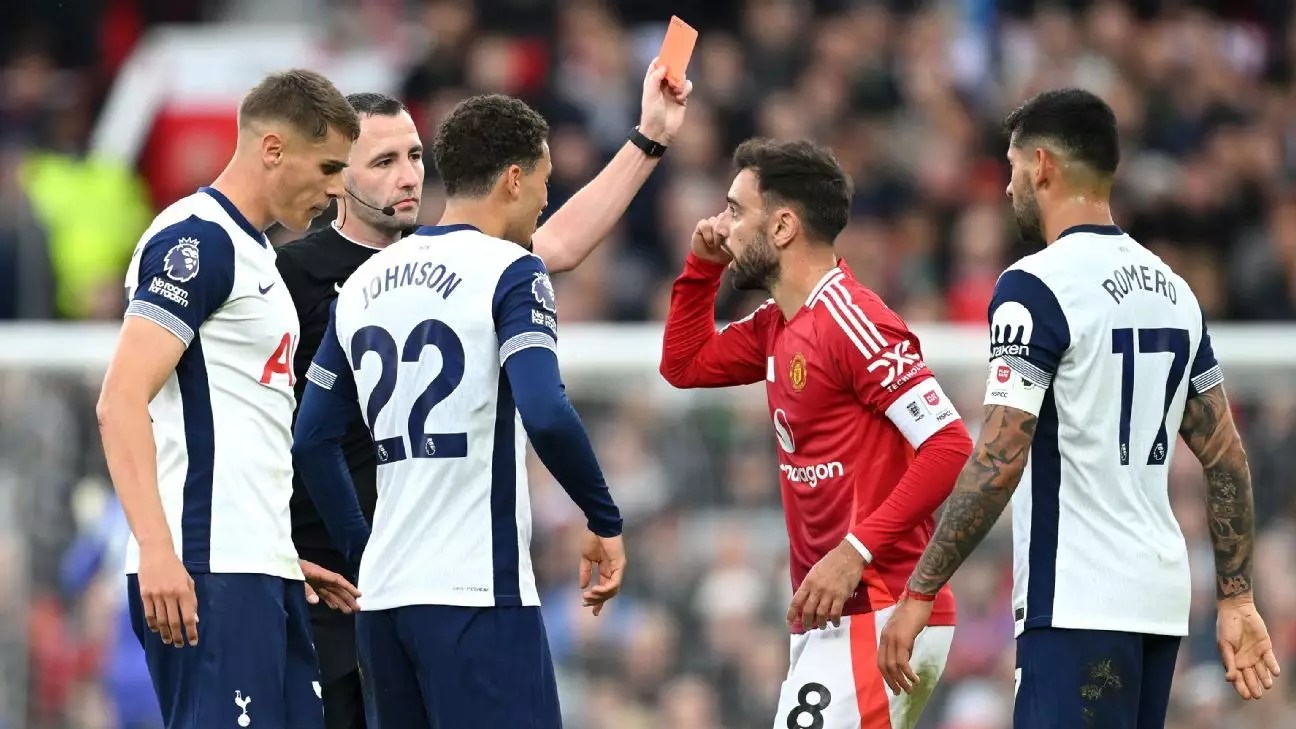The recent Premier League match between Manchester United and Tottenham Hotspur will long be remembered not just for its outcome, a disappointing 3-0 loss for United, but for a pivotal moment involving club captain Bruno Fernandes. The incident occurred when Fernandes lunged at Tottenham’s James Maddison in an attempt to win the ball, but slipped and inadvertently caught Maddison with his leg. Referee Chris Kavanagh quickly deemed the challenge worthy of a straight red card, a decision confirmed by VAR official John Brooks. This decision sent shockwaves through the United camp, altering the dynamics of a match they were already struggling to control.
However, the narrative changed dramatically when Manchester United submitted an appeal against the red card. The Football Association (FA) carefully reviewed the circumstances surrounding the incident and ultimately ruled in favor of Fernandes, overturning the initial decision. In an official statement, the FA announced that Fernandes would be eligible to play in the next three league matches against Aston Villa, Brentford, and West Ham. This outcome not only restores a key player to the squad but also raises questions about the consistency of officiating and VAR interventions in high-stakes matches.
The immediate aftermath of the red card saw United manager Erik ten Hag express his displeasure, labeling the ejection as a significant turning point. Although his team struggled to gain momentum even before the dismissal, Ten Hag underscored the psychological impact such decisions can have on a player’s focus and a team’s collective energy. Fernandes himself voiced his frustration with the decision, offering insight that Maddison allegedly agreed the foul didn’t warrant a sending-off. This testimony, if true, intensifies the conversation around the interpreting of such incidents where intent and context are frequently debated.
The decision to reverse the red card comes as a respite for Manchester United as they enter a critical phase of the Premier League season. With key games approaching, the availability of their captain is invaluable. Fernandes has been a cornerstone of the squad, offering leadership and creativity on the pitch. His trust in the appeal process reflects a broader potential confidence within the squad to challenge controversial calls and emphasizes the modern dynamics of player management in high-pressure situations.
Beyond the immediate fallout, this incident invites a broader discussion about officiating standards and VAR’s role in modern football. As fans, players, and managers expect the system to enhance fairness, cases like Fernandes’ red card highlight the often contentious relationship between technology and human decision-making in sports. Going forward, clubs will likely continue to advocate for clarity in officiating, ensuring players are treated equitably on the pitch.
While Fernandes celebrates his reprieve, the match against Tottenham serves as a microcosm of the ongoing challenges in football—balancing swift decision-making with fairness, context, and player protection.


Leave a Reply